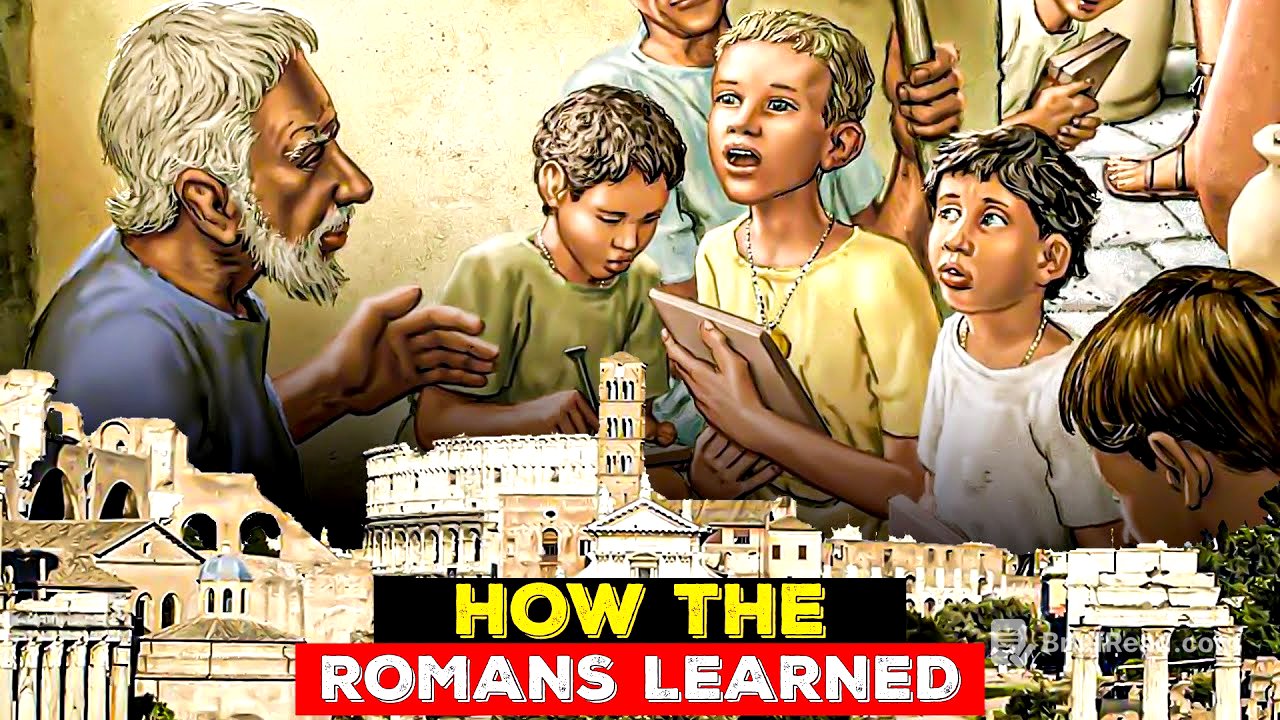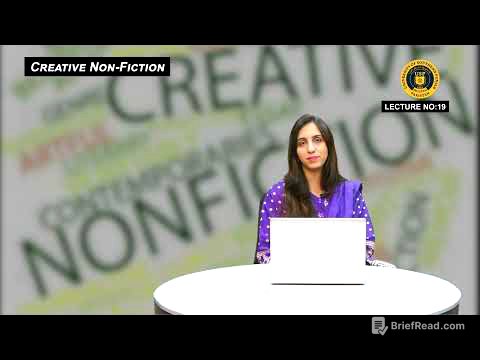TLDR;
This video explores the history and culture of Roman education, from its early beginnings in the family home to the development of formal schools and the lasting impact of Greek language and literature. It highlights the values, skills, and knowledge imparted to Roman citizens, and how the Roman education system has influenced modern pedagogy.
- Early education focused on instilling Roman virtues and practical skills.
- Formal schools emerged as the Republic grew, offering a broader curriculum.
- Greek language and literature significantly shaped Roman intellectual pursuits.
- Roman education has had a lasting impact on Western civilization, influencing law, engineering, art, and philosophy.
Intro [0:00]
The video introduces the Roman education system as a unique structure designed to produce competent citizens, orators, soldiers, and future leaders. Education in Rome was a means of instilling the virtues and values that defined Roman society. While the patrician class received a comprehensive education geared towards leadership, plebeians often learned trades and practical skills. Even slaves had opportunities for education, though the extent and purpose varied. The Roman education system evolved alongside Rome's transformation from a city-state to an empire, adapting to the changing needs and aspirations of Roman society. The video aims to uncover the subjects taught in Roman schools and how they shaped Roman life and influenced modern education.
The Family School [1:36]
In the early Roman Republic, the family home was the primary center for education, with the father, or pater familias, responsible for guiding children to become virtuous Roman citizens. Boys were taught reading, writing, arithmetic, courage, endurance, respect for law, and a sense of duty, preparing them for public life. Girls were educated to manage the household, learning spinning, weaving, and sewing, but many also learned to read and write. The education provided varied based on gender and social class, with patricians receiving a more rounded education than plebeians and slaves. Wax tablets and styluses were commonly used for writing practice, and oral recitation helped children memorize texts and develop public speaking skills.
From Home to Classroom [4:12]
As the Roman Republic expanded into the Roman Empire, formal schools and teachers became more common, marking a shift from home-based education. These schools were often located in public spaces like the Forum or basilicas, with no standard architecture. Attendance wasn't exclusive to the patrician class; plebeian children and even some children of slaves had the opportunity to attend. The cost of education varied based on the teacher's reputation and the complexity of the subjects. The curriculum expanded beyond basic reading, writing, and arithmetic to include subjects that would define students' intellectual growth and societal roles. Roman education was divided into three stages: the ludus for basic skills, the grammaticus for grammar, literature, history, and mythology, and the rhetor for rhetoric, essential for politicians, lawyers, and public officials.
The Influence and Importance of Greek Language and Literature in Roman Education [6:15]
Greek culture and language significantly influenced the Roman education system as the Roman Empire expanded. Learning Greek was considered essential for the Roman elite, providing access to vast treasures of literature, philosophy, science, and law. Figures like Homer, Plato, Aristotle, Euclid, and Hippocrates were central to Roman education, with works like Homer's Iliad and Odyssey, Plato and Aristotle's philosophical musings, Euclid's geometrical treatises, and Hippocrates' medical texts being studied. Roman writers translated and adapted Greek texts into Latin, making them accessible to a wider audience. Cicero's translations brought Greek philosophy to the Roman audience, enriching the Latin language, while Virgil's Aeneid was an attempt to create a Roman equivalent of Homer's epics.
The Legacy of Roman Education [8:33]
The Roman education system has had a lasting impact on Western civilization, shaping the intellectual landscape and influencing political, social, and cultural life. Educated elites played a significant role in law, administration, engineering, art, and literature. Rome's legal system served as a blueprint for many modern legal systems, and Roman engineering feats demonstrated practical and technical education. The works of Virgil, Ovid, Cicero, and Seneca continue to inspire readers and writers today. Roman education also influenced religious thought and philosophy. The video concludes by questioning whether elements from the Roman model, with its emphasis on civic virtues and practical skills, could be reintegrated into modern education systems.









